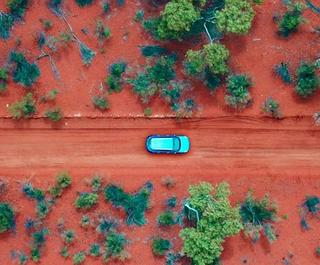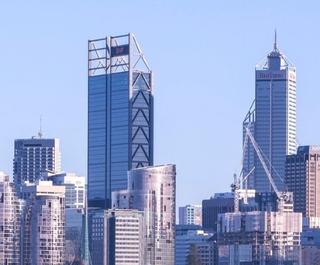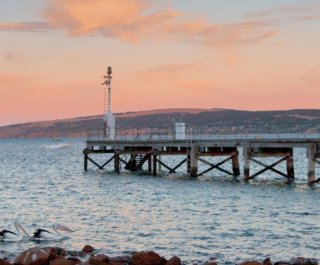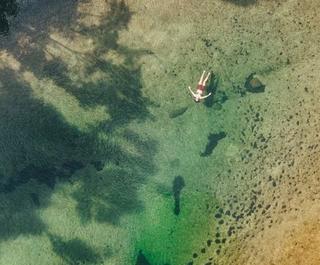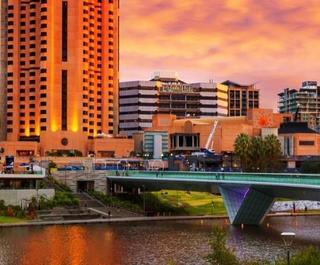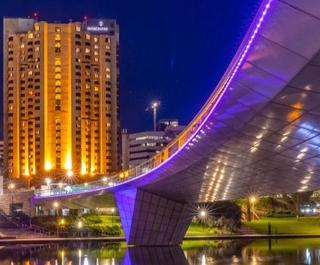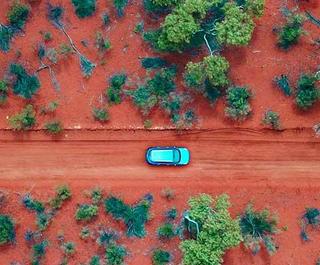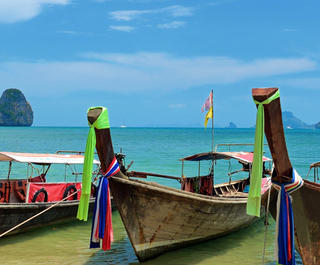
Hidden somewhere between Cairns and Townsville in a mysterious thick rainforest complete with its own lush waterfall, is a magical Spanish castle of yesteryear. Surrounded by a spectacular garden of more than 7,000 species of tropical plants and trees, Paronella Park is a heritage-listed property near Innisfail, which holds strong historical significance for Tropical North Queensland.
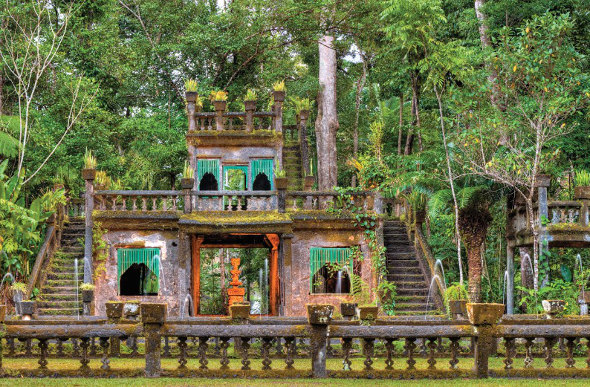 The refreshment rooms by day. (Image: Cairns Attractions)
The refreshment rooms by day. (Image: Cairns Attractions)
The site is a masterpiece, built in the 1930s by the legendary Jose Paronella, who was a Spanish immigrant cane-cutter turned wealthy land developer, making his fortune from buying and reselling cane farms.
The castle and its remnants have similar features to Cambodia’s iconic Angkor Wat, with moss and foliage covering the entire original structure; the greenery only adding to its majestic feel and absolutely intriguing history.
Jose first sailed to Australia in 1913 with the intention to build a better life for himself and his fiancée at the time, Matilda, who stayed behind in Spain for 11 years.
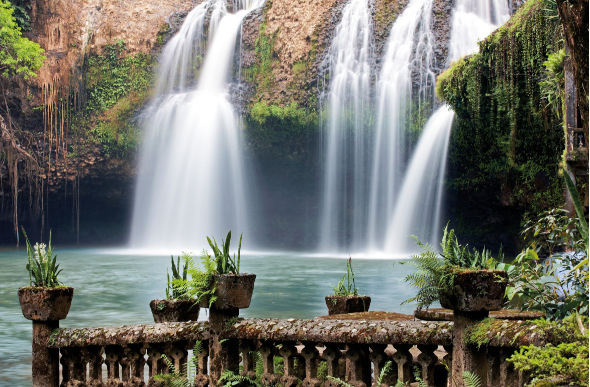 The falls and picnic area. (Image: Tourism Queensland)
The falls and picnic area. (Image: Tourism Queensland)
Unsurprisingly when Jose finally reunited with his fiancée, he quickly found out she had married someone else (ouch!). However in an unexpected twist, Jose found a fondness in Matilda’s younger sister Margarita, with the couple falling madly in love and returning to Jose’s much-loved piece of paradise, right at the doorstep of Mena Creek Falls.
Jose had earlier discovered the enchanting piece of land in his second year as a cane-cutter and was mesmerised by its beauty, only to acquire it 15 years later, all for just ₤120.
With his own bare hands, Jose began creating the castle of his dreams, using poured cement and old railway tracks as reinforcing. He built the grand staircase first, adding a reception area, tennis court, cinema, and ballroom – complete with a giant mirror ball projecting pink and blue hues.
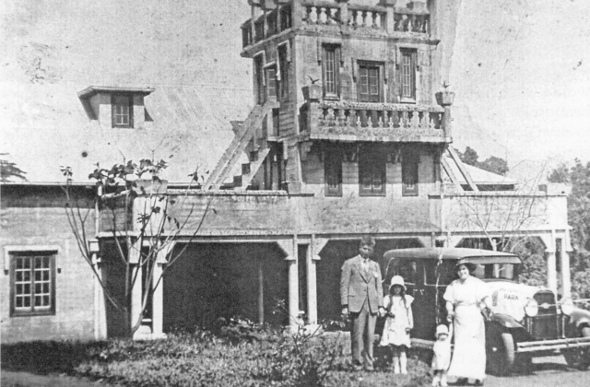 The Paronella family: Jose, Teresa, Joe and Margarita. (Image: Cairns Attractions)
The Paronella family: Jose, Teresa, Joe and Margarita. (Image: Cairns Attractions)
Jose even built a museum to house his collections of coins, guns, dolls and timber – all of this purely for the public to enjoy. Let’s just say Jose’s castle was the 'Gatsby' mansion of the day, filled with sophistication, fun and frivolity.
This inspirational man was even responsible for building north Queensland’s first hydroelectric-generating plant, which powered the entire site.
More holiday experiences in Tropical North Queensland:
Photogenic sights. 4 Ways To Capture Tropical North Queensland's Best Sides
Round-trip by car. Road Trippin' Tropical North Queensland
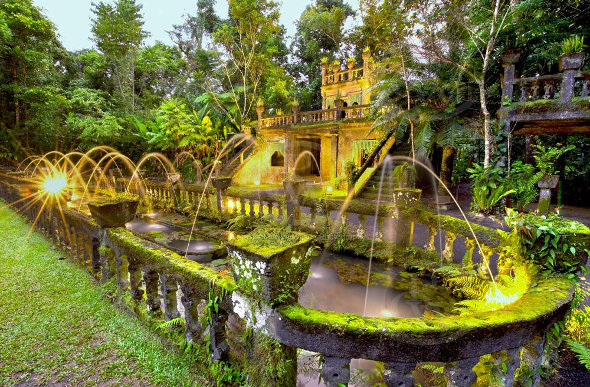 The Lower Refreshment Rooms are simply stunning at night. (Image: Owen Wilson)
The Lower Refreshment Rooms are simply stunning at night. (Image: Owen Wilson)
When Jose tragically died of cancer at age 60, Margarita and their son Joe adoringly picked up the pieces to keep his life-long labour of love alive, until the property was eventually sold out of the family in 1977.
Suffering a relentless bout of disasters – including a fire, cyclone and several floods – current owners Mark and Judy Evans eventually brought Jose’s creation back to life, winning multiple national and state tourism awards, and the site is now a popular wedding venue.
These days, guests can hear about Jose’s story and other secrets in a 45-minute storytelling tour, while at night, visitors can enjoy the castle lit up by Jose’s fully restored and operational hydroelectric generator – impressive!
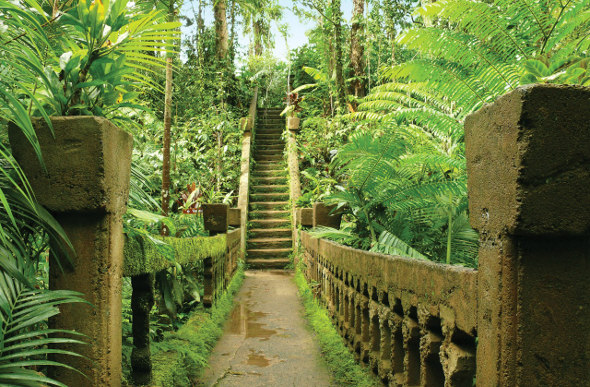 The bridge to the grand staircase looks like a jungle adventure. (Image: Cairns Attractions)
The bridge to the grand staircase looks like a jungle adventure. (Image: Cairns Attractions)
Although much of the castle’s main structures can’t be accessed due to structural instability, guests can still meander through much of the grounds, and, of course, sit among Jose’s spectacular garden with the towering kauris trees he planted himself, and the five hectares of tropical plants featuring orchids, gingers, lilies and ferns, plus the hundreds of varieties of birds, butterflies and fish. Not to mention the suspension bridge over the falls, plus the castle’s grand fountain.
So if the kids are begging to be taken to a magical, faraway castle or you simple want to soak up an important piece of Australian history, put this place right at the top of your travel bucket list. Now.
.........................................................................................................................................................
Visit your local Flight Centre store or call 131 600 for more advice and the latest deals on travelling to Tropical North Queensland.
.........................................................................................................................................................


